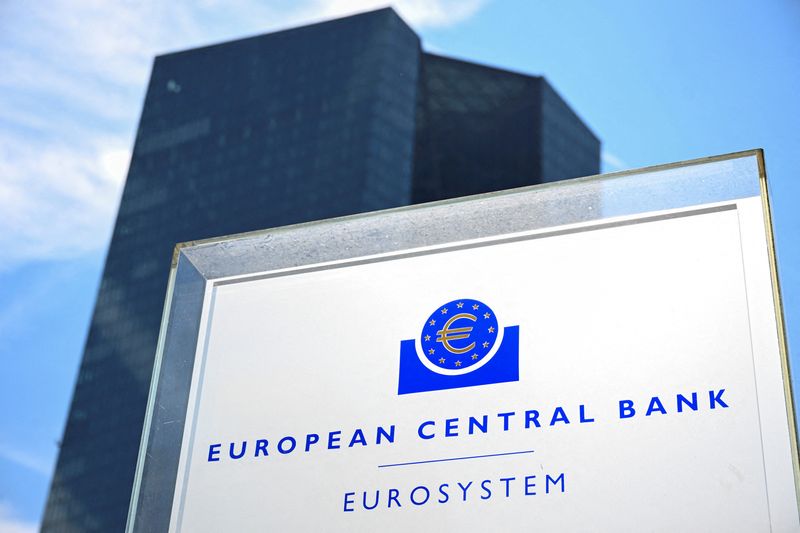By Francesco Canepa and Balazs Koranyi
FRANKFURT (Reuters) – Some European Central Bank governors at Thursday’s rate-setting meeting made the case for dropping a pledge to keep policy tight as inflation may now turn out lower than anticipated only a few weeks ago, five sources told Reuters.
Their idea did not gain traction but it suggests the debate within the ECB, which cut interest rates on Thursday for the third time this year, was increasingly shifting from battling high inflation to reviving lacklustre economic growth.
At the meeting, some policymakers suggested inflation may stabilise at the ECB’s 2% target a few quarters earlier than the last three months of next year, as was predicted by the bank’s staff only last month, the sources said.
They argued for dropping a long-standing pledge to keep borrowing costs “sufficiently restrictive for as long as necessary”, the sources added.
Economists say rates are restrictive when they are high enough to slow down the economy and, with it, inflation, so the change would have signalled that more rate cuts were coming.
An ECB spokesperson declined to comment.
ECB President Christine Lagarde said during her press conference inflation would fall to 2% “in the course of next year”, rather than “over the second half of next year” as she had said after the Sept. 12 meeting. The bank will publish new projections at its next policy meeting on Dec. 12.
Lagarde did not provide hints about future rate cuts but four sources close to the matter told Reuters on Thursday that a fourth cut in December was likely unless economic or inflation data turns around in the coming weeks.
Yet, the U.S. elections, and the threat of fresh trade tariffs if Donald Trump is elected president, were seen as a major source of uncertainty, the sources added.

